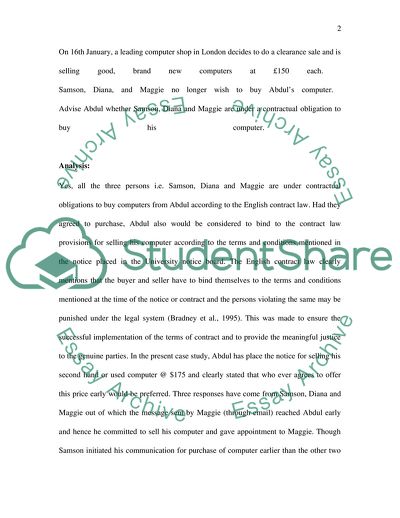Cite this document
(Analysis of Law of Contract Cases Assignment Example | Topics and Well Written Essays - 1500 words - 1, n.d.)
Analysis of Law of Contract Cases Assignment Example | Topics and Well Written Essays - 1500 words - 1. https://studentshare.org/law/1732146-law-of-contract
Analysis of Law of Contract Cases Assignment Example | Topics and Well Written Essays - 1500 words - 1. https://studentshare.org/law/1732146-law-of-contract
(Analysis of Law of Contract Cases Assignment Example | Topics and Well Written Essays - 1500 Words - 1)
Analysis of Law of Contract Cases Assignment Example | Topics and Well Written Essays - 1500 Words - 1. https://studentshare.org/law/1732146-law-of-contract.
Analysis of Law of Contract Cases Assignment Example | Topics and Well Written Essays - 1500 Words - 1. https://studentshare.org/law/1732146-law-of-contract.
“Analysis of Law of Contract Cases Assignment Example | Topics and Well Written Essays - 1500 Words - 1”. https://studentshare.org/law/1732146-law-of-contract.


